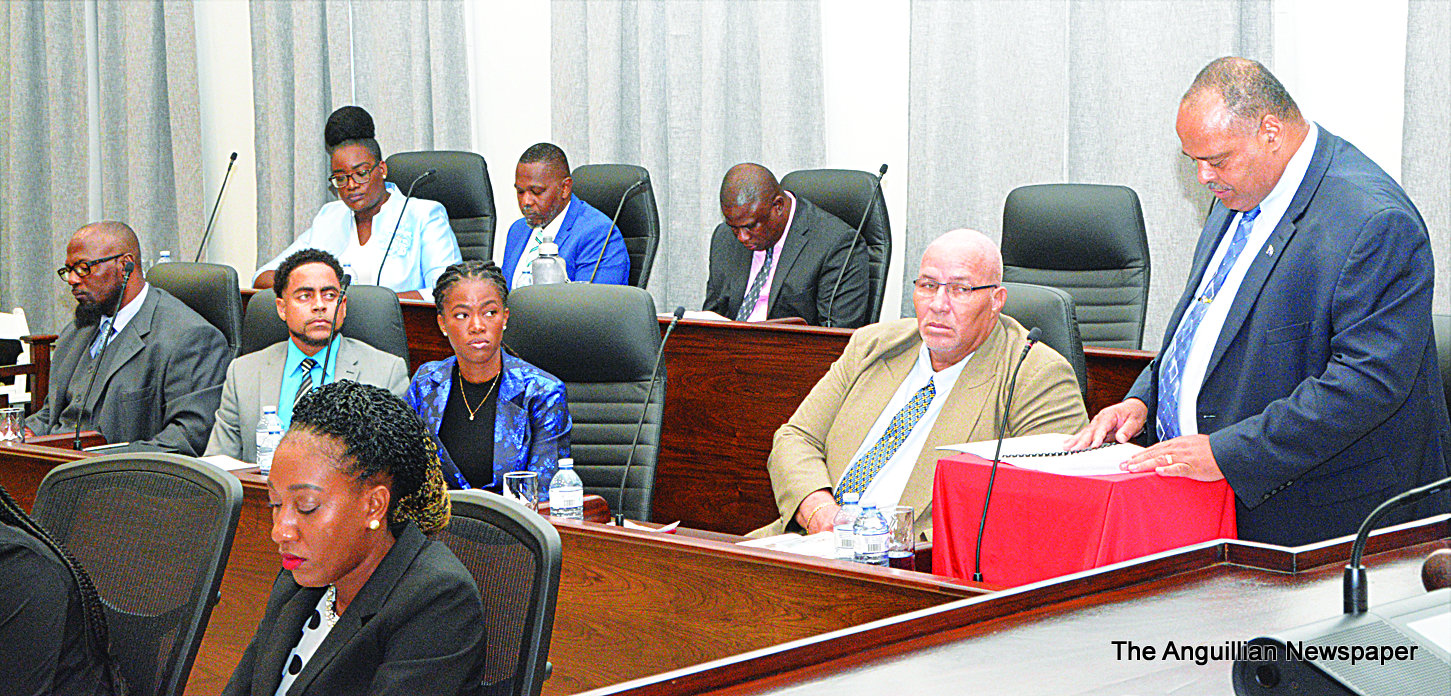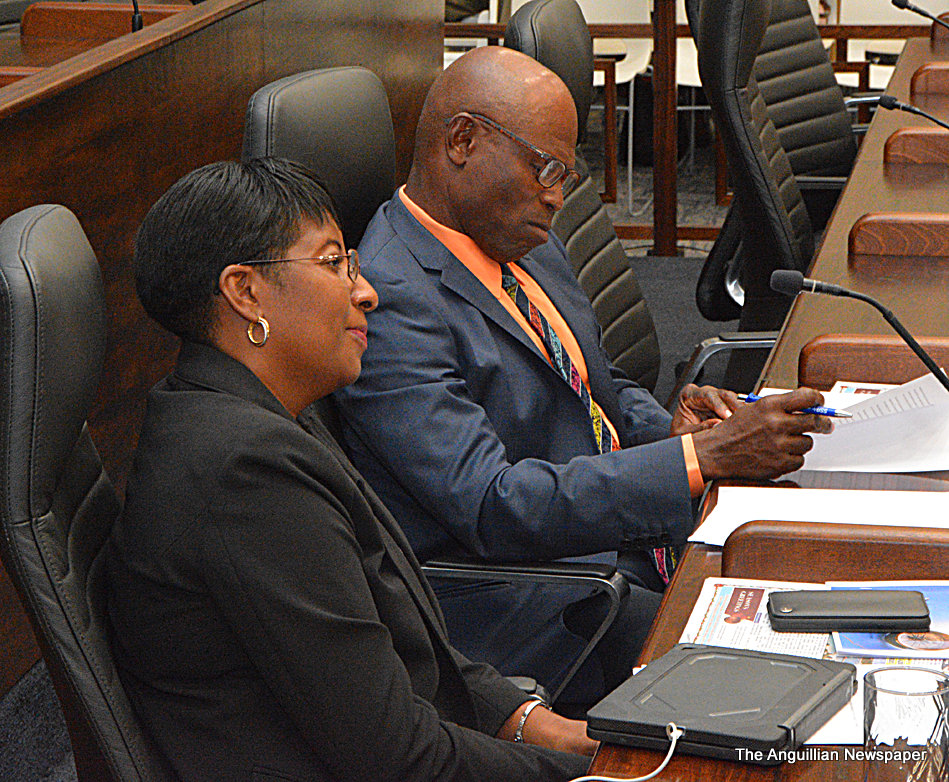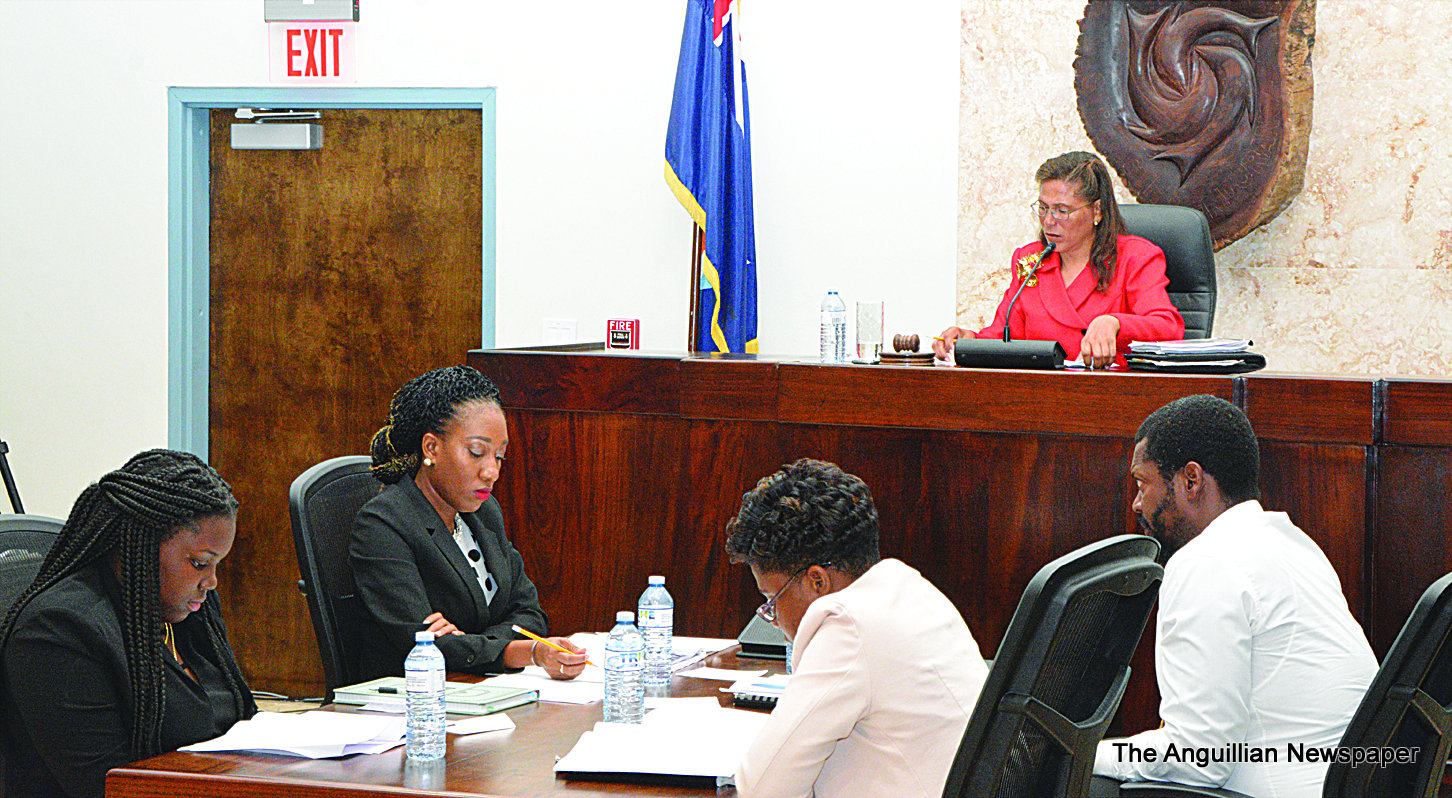The Honourable Premier, Minister of Finance and Health, Dr. Ellis Webster, says the 2021 budget “is about sacrifice and hope.” He further states that “it is about financial responsibility, prudent spending and sustainable economic growth.”

Budget Address to House of Assembly
He made the statements while delivering the 2021 Budget Address in the House of Assembly on December 18, 2020, in the presence of a packed and diverse audience in the gallery. The theme of his presentation was “Restoring Anguilla’s Economy Innovatively and Sustainably”. It was his Anguilla Progressive Movement Government’s first Budget Address since assuming office on June 30, 2020, following the general election.
After a detailed review of the economic and fiscal situation in Anguilla during 2020, including the challenges brought on by Covid-19, the Premier gave a comprehensive outline of the 2021 Recurrent Expenditure. This took into account the costs of the functioning of the various ministries and departments of Government.
“Madam Speaker, the Recurrent Expenditure Estimate for this fiscal year is projected to be EC$226.71 million including amortisation [the process of reducing or paying off a debt with regular payments] of EC $32.96 million,” he said. “This is a 6.11 percent reduction or EC$14.76 million variations when compared to 2020 approved recurrent budget of EC241.47 million. This is a result of the Government making some critical decisions to deal with the current financial challenges in order to meet its overall obligations.”
Premier Dr. Webster continued: “Personal Emoluments for the 2021 budget are estimated at EC$83.21 million resulting in 1.78 per cent or EC$1.51 million reductions over the 2020 approved budget of EC$84.72 million. This decrease is a result of Government deferring the filling of some vacant positions due to budgetary constraints. Retiring benefits primarily remain unchanged for 2021 compared to the 2020 approved budget of EC$9.94 million.
“Interest payments, which include both domestic and foreign debt, have an estimated budget of EC$16.08 million. This is EC$2.81 million less than the 2020 approved budget. This reduction is due to the lower domestic variable interest rate as previously mentioned, as well as the deferral of the proposed new borrowing in 2020.
“The allocation for Goods and Services is decreased by EC$3.78 million when compared to the 2020 approved budget of EC$55.56 million, moving the 2021 budget to EC$51.78 million. This stemmed from a cut in the restricted expenditure budget for 2021, which is maintained as a reserve account for unforeseen expenditure needs.
“Current transfers have an estimated budget of EC$58.36 million for 2021. This is a decrease of 19.35 percent or EC$14.00 million below the 2020 approved budget of EC$72.36 million. This accounts for subventions for statutory bodies and expenditure related to medical treatment overseas, public assistance; and sports, youth, culture and arts development initiatives.”
The Premier compared the estimated 2021 expenditure to the 2021 estimated revenue as follows:
“Madam Speaker, the recurrent revenue estimate for 2021 is EC$229.82 million, which represents a 9.32 percent decrease in comparison to the 2020 recurrent revenue estimate of EC$253.45 million. Taxes on International Trade continue to be a significant revenue source and we estimate to collect EC$48 million which represents 20.88 percent of total estimated recurrent revenues. Import Duties are the largest driver of this revenue category and is estimated to total EC431.56 million. Taxes on Goods and Services account for 46 percent of the budgeted total recurrent revenue and is projected to be EC$106.27 million.
“Taxes on payroll and workforce, which include the Interim Stabilisation Levy, are expected to generate EC$15.62 million. This is an increase from the projected outturn in 2020 which is expected to yield EC$15.57 million. Taxes on property are estimated to collect EC$6.11 million, which represents a 10.54 percent decrease over the projected collections for 2020 of EC$6.83 million. Revenue from other sources, such as licence on Bulk Petroleum, is projected to total EC$1.5 million in 2021.”
Premier Webster went on: “Madam Speaker, these projections are depressed due to the unprecedented uncertainty we continue to face with the COVID-19 pandemic. In response to the economic uncertainty, along with our efforts to broaden the revenue base to be more resilient to cyclical volatility, we will implement the following tax measures:
• Implementation of an Import Licence – Bulk Petroleum fee at EC$750,000 per importer.
• Implementation of a Resort Residence Annual Levy on Luxury Real Estate Products.
• Removal of sunset clause for Interim Stabilisation Levy.
• Renewal of the Electricity Supply Licence and the Gross Revenue Tax for another three-year period at the same rates.”
In terms of Capital grants, Premier Webster said the 2021 estimates were at EC$2.87 million, the final pay out to Anguilla under the 11th European Development Fund Programme.

& Mr Cardigan Connor
He continued: “Madam Speaker, the fiscal challenges abound –meaning that outside of the UK-funded] Anguilla Programme, the resources to undertake capital investment are severely restricted for 2021. Focus will be on meeting any ongoing commitments from 2020, providing counterpart support for externally-funded projects and managing any exposure to risk.
“Following the outcome of the Brexit referendum in June 2016, we will see the final disbursements and an end to our development cooperation with the European Union. Madam Speaker, I take this opportunity to extend my gratitude to the European Commission and to the Delegation in Barbados, for their administration of these programmes. [This assistance] has supplemented funding for major infrastructural needs within Anguilla in the areas of roads, port and utilities development, as well as support for many economic and social reforms.
“Having received over EC$125 million in disbursements over three successive direct budget support programmes, the Government of Anguilla stands ready to advance discussions and negotiations with the UK Government for an effective replacement for the EDF Programmes. [It is hoped that it will be] one that considers not only the financial loss but also the loss of benefits from access to regional, thematic and horizontal programmes and cooperation with other territories.”

The Budget Address was followed by the Budget Debate on Tuesday, December 29. The Premier was the mover of the debate and the first speaker was the Minister of Home Affairs, Mr. Kenneth Hodge. The debate was aggressively continued for several hours by the Minister of Infrastructure and Tourism, Mr. Haydn Hughes, who became locked in disagreements on various matters with the Leader of the Opposition, Mrs. Cora Richardson-Hodge, who rose to speak on a point of order at multiple occasions. The Parliamentary Secretary, Mrs. Quincia Gumbs-Marie, also contributed to the debate.
There being no other speakers, the debate was concluded by Premier Webster – and the budget, incorporated in the Appropriation Bill 2020, was subsequently passed when the vote was taken.
The Appropriation Act was later delivered to the Acting Governor, Mr. Perin Bradley, for signature. It is understood that the budget does not require the approval of the UK Government which has already approved the Medium Term Economic and Fiscal Plan on which the budget is based.










